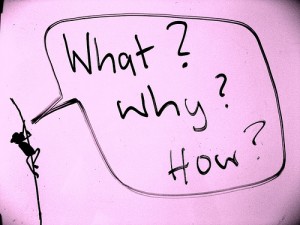Remember Cactus Kate’s description of blogging as
“an utterly useless waste of a person’s time”
(Soooo well put, Kate!)
But her comment, of course, fits into Jonathan Swift’s self-aware description of satire …
Satire is a sort of glass, wherein beholders do generally discover everybody’s face but their own, which is the chief reason for that kind of reception it meets in the world, and that so very few are offended with it.
… in other words, we don’t think that put-down applies to us, to our blog or website, or writing etc
Maybe we should?
Here’s a related thought about writing from Margaret Atwood in part of her introduction to The Paris Review Interviews vol III …
Why am I doing such an eccentric thing as writing? Is it just undigested neurosis? Why spend all day in a room, in the company of a bunch of people who don’t really exist? What good does it do the world? Isn’t it unhealthy? Why waste the paper?
Every writer has such thoughts from time to time, and to know that others have had them too is reassuring: I am not the only one who had viewed the page with loathing.
What do we achieve with our writing? Anything? Nothing? Mere entertainment?
Comforting the afflicted? Afflicting the comfortable? Hellfire and damnation?
It’s good to ask ourselves such questions now and then, I think.
At times thePaepae.com seems (even to me) to be a platform for exposing, cataloguing, criticising, mocking, even vilifying certain types of people and operations. That’s not all thePaepae.com is, but it’s part of it. That’s undeniable.
Muckraker? I wish!
 I was discussing with my friend Graeme recently that I don’t see the term ‘Muckraker’, when it’s occasionally tossed at me, as A Bad Thing …
I was discussing with my friend Graeme recently that I don’t see the term ‘Muckraker’, when it’s occasionally tossed at me, as A Bad Thing …
Muckraker — Origin of the term, Theodore Roosevelt
While he may never have used the term himself, the origin of the term “muckraker” is attributed to [US] President Theodore Roosevelt, who, during a speech delivered on April 14, 1906, drew on a character from John Bunyan’s 1678 classic, ‘Pilgrim’s Progress’, saying:
“… you may recall the description of the Man with the Muck-rake, the man who could look no way but downward with the muck-rake in his hands; Who was offered a celestial crown for his muck-rake, but who would neither look up nor regard the crown he was offered, but continued to rake to himself the filth of the floor.”
While cautioning about possible pitfalls of keeping one’s attention ever trained downward, “on the muck,” Roosevelt emphasized the social benefit of investigative muckraking reporting, saying:
There are, in the body politic, economic and social, many and grave evils, and there is urgent necessity for the sternest war upon them. There should be relentless exposure of and attack upon every evil man whether politician or business man, every evil practice, whether in politics, in business, or in social life. I hail as a benefactor every writer or speaker, every man who, on the platform, or in book, magazine, or newspaper, with merciless severity makes such attack, provided always that he in his turn remembers that the attack is of use only if it is absolutely truthful.
The term eventually came to be used in reference to investigative journalists who reported about and exposed issues such as crime, fraud, waste, public health and safety, graft, illegal financial practices — when found within America and, by association, foreign interests, for example, as partners and co-conspirators. A muckraker’s reporting may span businesses and government generally, especially where such have elements of both involved in the same report. — Wikipedia
When I consider the impact of people (some of them my heroes) like John Pilger, Seymour Hersh, Noam Chomsky, early Ralph Nadar, Woodward & Bernstein and other ‘muckraking’ journalists, I am inspired. I’m also greatly encouraged by the impact of other whistle-blowers like Hunter S. Thompson, Michael Moore and lately Jon Stewart and the gutsy unconventionalists like Julian Assange.
Do they, do I, always get things 100% right? Nope. We fall short. But we aim for accuracy. And, as I said in my post If you prick us, do we not bleed?, I try to be FAIR.
The value of writing for ourselves: Writing to work out what I think
Sometimes I don’t know what I think or feel about a topic until I have a go at expressing it.
I have been taught (and I believe today) that what we sometimes call our ‘intuition‘ is the sum total of our experiences. That includes ‘non-verbal’ knowledge or ‘I-haven’t-quite-made-the-connection’-type links between different forces and facets of a situation or an issue. People are complicated. Sometimes our conclusions can be unspoken, nascent — subterranean, buried in our consciousness.
With luck (and a protracted endeavour to ‘express a thought’) I can find my way into or through complex matters through reflection and consideration, some of that through written exploration. It can be an effort, it can take time. But as John F Kennedy said:
Too often… we enjoy the comfort of opinion without the discomfort of thought.
I am one of those who do like to process things mentally. (‘That’s just how I roll.’ {snort})
I try to always be aware that we are each emotional beings (children, really, eh?) I’d be the first to admit we cannot gain access to our deeper selves, our souls, through purely mental means … but it can help.
Meditation and reflection, and discussion, thinking-out-loud, and writing one’s thoughts can uncover conclusions, decisions and truths — truths our reactive minds, unexpressed, just could not get to.
So, that’s why I do this. For the journey of discovery.



I like yourself enjoy absorbing ‘whistle blowers’ and ‘mudslingers’ (as you call them) viewpoints.
And as you say they are never 100% correct in fact far from it.
I do however become a little dismayed from time to time.
I often see when a whistle blower/Mudslinger comes out into the open with some detail. quite often other whistle blowers/Mudslingers will often back them, regardless of the scenario.
A perfect recent example is Assange 99.9% of people have not and will not read what he’s exposing, yet millions will back him for what he is doing rather than what he is exposing, IMHO this goes against what whistle blowing/Mudslinging is for, don’t support it because of the person, support them because of the facts.
Its like they don’t tend use critical thinking and investigate the facts.
They become ‘Shills’ to the Whistleblower cause without opening their own eyes.
@Craig: Mudslinger isn’t the same as Muckraker.
I think the efforts of WikiLeaks are ultimately noble, as I said in my post History will judge WikiLeaks. And they’ll be seen as right. … which quoted Daniel Elsberg:
This is disquieting …
And this:
http://www.guardian.co.uk/commentisfree/libertycentral/2011/mar/04/bradley-manning-us-wikileaks-hypocrisy
[…] the spirit of my recent post ‘Why am I doing this? Muckraking? is this very worthwhile piece in the NY Times from Frank Rich Confessions of a Recovering Op-Ed […]
[…] I know what she means. This is how I put it in Why am I doing this? Muckraking?: The value of writing for ourselves: Writing to work out what I […]
[…] I see my blog posts here — some of them pretty ‘harsh’ or ‘judgemental’ — and my willingness to engage in dialogue, to see the ‘other side’, and to host contrary opinions and accounts of controversial events as part of what I talked about in this post: ‘Why am I doing this? Muckraking?‘ […]
[…] — of the sort that I blunder my way through here at The Paepae — sometimes thinking out loud, working out what I think as I go — is different from (or ‘different to’) the sort of let-it-go-for-your-own-good […]
[…] far easier attack a person than investigate their arguments. A John F. Kennedy quote I’m fond of is […]